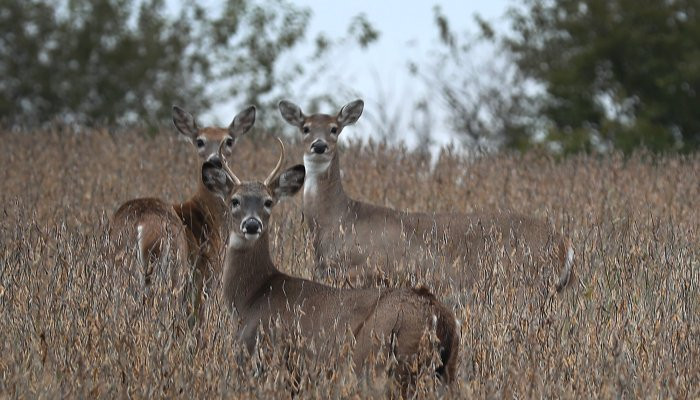Scientists fear animals could harbor coronavirus and then pass it back to humans
 A new study has found widespread coronavirus infection among white-tailed deer in Iowa and researchers are concerned the species could potentially become a reservoir for the virus. Scientists from Penn State University analyzed nearly 300 samples collected from deer across the state by wildlife officials during the peak of human COVID-19 infection in 2020. They found that more than 80 percent of white-tailed deer sampled in different areas of Iowa between December 2020 and January 2021 tested positive for SARS-CoV-2. More than a third of all deer tested positive from April to December 2020. The study has not been published and was posted on the pre-print server Biorxiv Monday. It’s not exactly clear how the animals are being infected, although genomic sequencing of the samples indicates the deer most likely got it from humans. “The viral lineages we identified correspond to the same lineages circulating in humans at that time,” Vivek Kapur, professor of microbiology and infectious diseases at Penn State and co-author of the study, said in a statement. “The fact that we found several different SARS-CoV-2 lineages circulating within geographically confined herds across the state suggests the occurrence of multiple independent spillover events from humans to deer, followed by local deer-to-deer transmission,” Vivek said. And while there’s no evidence the wild deer can transmit the virus back to humans, scientists said there’s an urgent need to monitor the spread of the virus in deer and its implications for humans. “This also raises the possibility of the spillback from deer back to humans, especially in exurban areas with high deer densities,” Vivek said. Vivek said hunters may want to take precautions when coming in contact with the animals by wearing appropriate personal protective equipment and getting vaccinated. |

Ai, Japanese chimpanzee who counted and painted, dies at 49
79118.01.2026, 15:12
Flat-headed cat not seen in Thailand for almost 30 years is rediscovered
95601.01.2026, 21:32
«Living in Yerevan becomes more dangerous for life with each passing year»: Kristina Karen Vardanyan (photo)
125930.11.2025, 23:53
Gramma the Galápagos tortoise, oldest resident of San Diego Zoo, dies at about 141
126730.11.2025, 10:30
Africa is splitting in two: Magnetic data shows the continent could be separated by a new ocean
116523.11.2025, 21:25
"I hope this is a good sign" - Dmitriev encounters bear in Alaska (video)
295615.08.2025, 21:56
